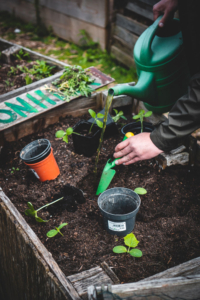Barter & Trade: Can I Do It?
Barter & Trade is the direct exchange of goods and services without using money. In early human societies, people engaged in barter out of necessity, swapping surplus goods with others to meet their diverse needs. This rudimentary form of trade marked the foundation of economic transactions.
Bartering or trading can be a creative and resourceful way for individuals or families to meet their needs without relying solely on traditional currency. Here are some practical real life ideas:
Skill Swapping:
- Exchange academic skills. For example, if one tax accountant requires some mechanical work, they could exchange services in place of a currency.
Tutoring Services:
- Family members with expertise in certain subjects can offer tutoring services in exchange for help with household chores, such as cleaning or organizing.
- An individual proficient in a subject could offer tutoring in exchange for lawn services or music lessons.
Meal Exchange:
- Organize meal exchanges with neighbors or friends. Each unit takes turns preparing a meal for the others, allowing everyone to enjoy diverse home-cooked dishes without the need for monetary transactions.
Clothing Swap:
- Families or neighborhoods can organize clothing swaps with friends or within their community. This allows for refreshing wardrobes without spending money. It’s an eco-friendly way to reduce waste and promote a sense of community.
Book or Textbook Exchange:
- People can organize book exchanges to share textbooks or leisure reading materials. This not only helps save money on purchasing new books but also promotes a culture of shared resources.
Rideshare or Carpooling:
- Those with transportation needs can organize a rideshare or carpooling system. One might also offer rides in exchange for assistance with grocery shopping or other tasks.
Childcare Exchange:
- Parents can organize a childcare exchange with other families. Each family takes turns looking after the children, allowing parents to have some free time without the expense of hiring a babysitter.
Home Maintenance Assistance:
- People with skills in home maintenance, such as plumbing, carpentry, or landscaping, can offer their services to others in exchange for assistance with tasks they may not excel in, like tutoring or meal preparation.
Language Exchange:
- Students studying different languages can engage in language exchange programs. For instance, a student fluent in Spanish might help another student with their Spanish studies in exchange for assistance with English.
Digital Services:
- People with digital skills, such as graphic or web design, coding, or content creation, can offer their services in exchange for goods or assistance. For instance, designing a flyer for a neighbor’s event in return for gardening help.
These examples illustrate that bartering or trading doesn’t have to be limited to goods; it can involve skills, services, and time, creating a sense of community and mutual support. Such exchanges can lead to cost savings and stronger social connections.
Other Ways to Barter/Trade:
Freecycle and Buy Nothing Groups:
- Join local Freecycle or Buy Nothing groups where people offer items they no longer need for free or in exchange for something else. This is an excellent way to declutter your home or acquire items without spending money.
Tool Libraries:
- Some communities have tool libraries where members can borrow tools they need for home projects instead of purchasing them. Consider contributing to the library by offering your skills or assistance.
- Ex: Cochrane, AB Public Library has a tool lending library, and also seasonally offer snow shoes, or hiking/camping gear
Fitness Class Swaps:
- Fitness enthusiasts can arrange class swaps. For instance, someone who teaches yoga might exchange classes with a friend who offers personal training sessions.
Gardening Swaps:
- Gardeners can swap seeds, plants, or even the produce from their gardens. This not only fosters community but also encourages sustainable and local agriculture.
- Ex: My neighbor has a green house and she grows tomatoes and other more delicate-to-Alberta-weather plants. I grow the hearty root vegetables, and other options, and we exchange at harvest.
Homestay or House Swaps:
- Families or individuals can arrange homestays or house swaps for vacations. This allows people to explore new places without the cost of accommodation.
Knowledge Bartering:
- Offer your expertise or knowledge in a particular field in exchange for learning something new. This informal education exchange can happen between individuals with different skills or interests.
These real-life examples illustrate the diverse ways people engage in barter and trade, showcasing the flexibility and adaptability of these systems in various aspects of life. Do a personal inventory and self evaluation: learn your skills and talents, and pursue your interests. Be prepared and willing to barter or trade with those around you! Happy trading!



